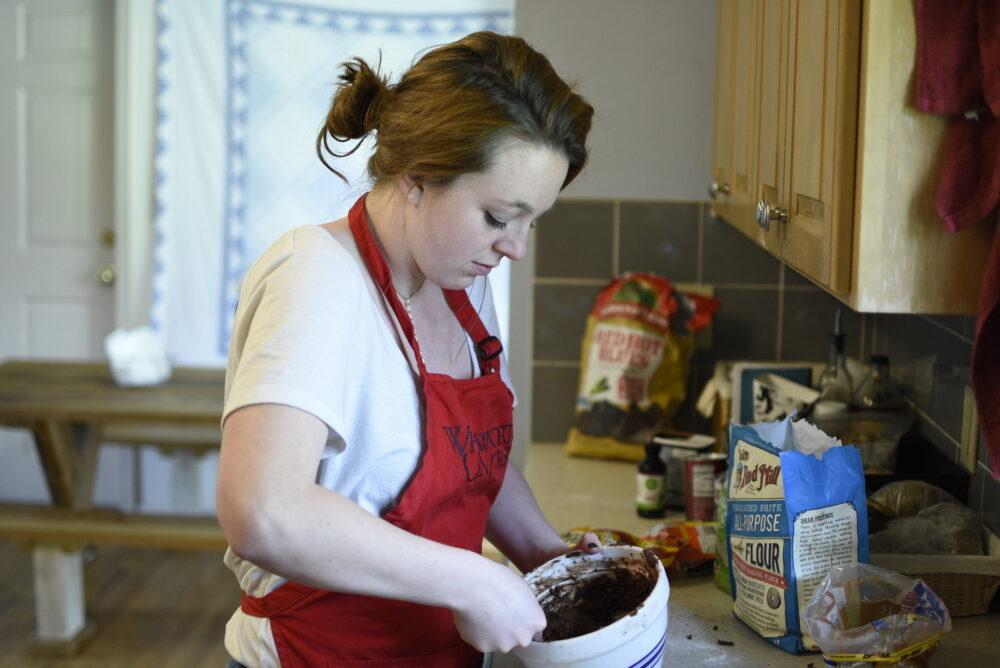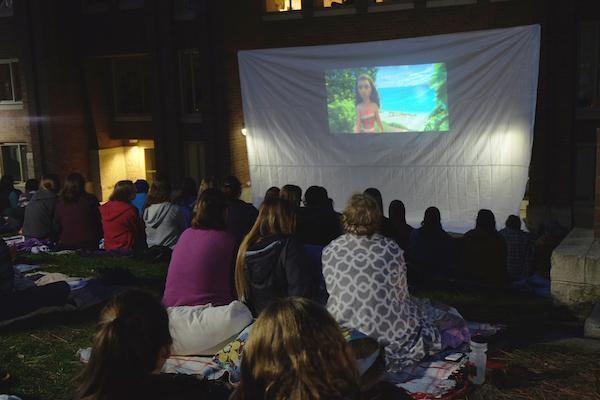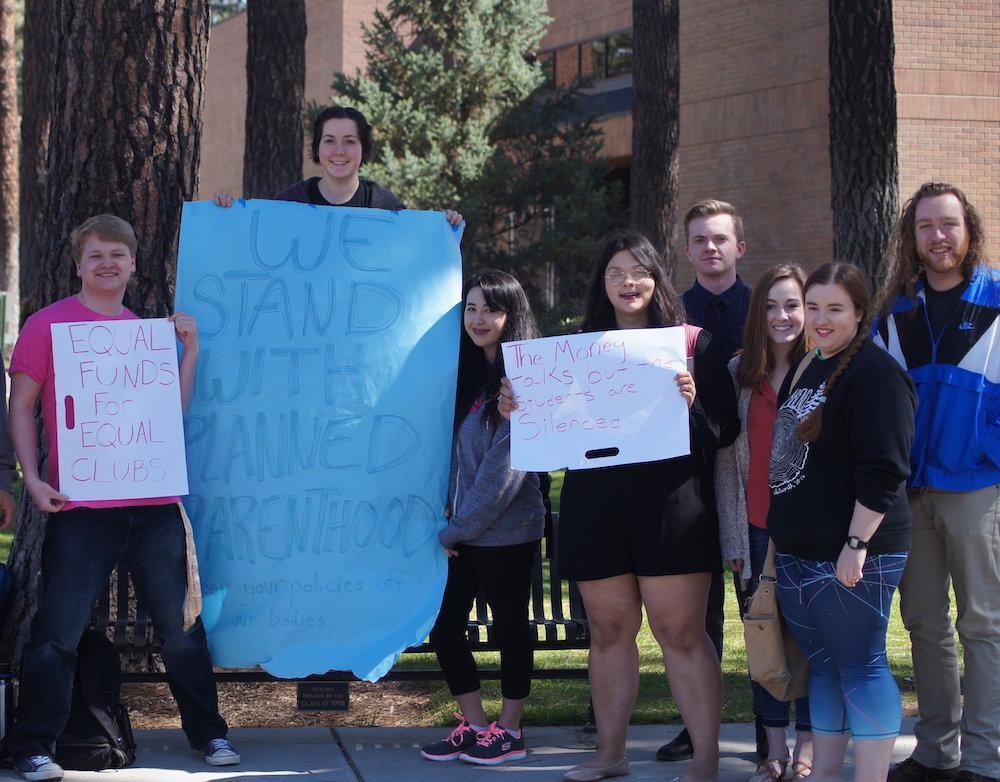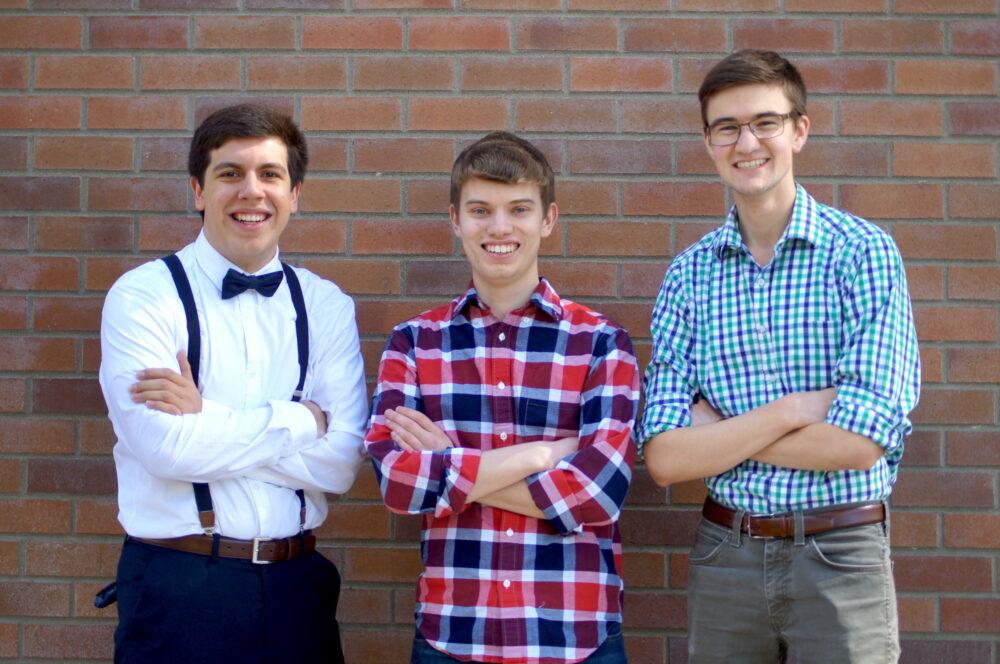President Beck Taylor invited Whitworth community members to a community forum Monday afternoon to discuss last week’s decision to separate the university from Planned Parenthood. Taylor opened the forum with a statement summarized and printed here, before students, staff and faculty asked Taylor questions for more than an hour. Below is a summary of those questions and Taylor’s responses.
Q: What is the role of club chartering committee and the administration when chartering a club? Generation Action’s attempted charter was blocked by vice president of student life Rhosetta Rhodes and Taylor earlier this year. All club charter proposals are sent to Rhodes for approval before the ASWU Assembly takes their final vote on the club’s charter status.
A: “I believe the institution has an incredible track record on empowering students,” Taylor said. He acknowledged the power ASWU has to oversee and fund clubs, but cautioned, “that empowerment should not be a rubber stamp.”
Taylor said the chartering system and club management need to be evaluated and a balance needs to be found between ASWU’s ability to charter and administration oversight.
“We don’t want to get into the practice of policing these kinds of things,” he said.
Q: How should staff discuss this situation and other controversial issues with students when they do not receive the same university protections, in reference to tenure, as faculty?
A: Taylor acknowledged the close relationship many students have with staff members and the importance of this discussion and others between staff and students. He said he has always “thought of the institution extending the same protections to staff as faculty” when it comes to discussions and dialogue on campus, calling this process “one of the goods of the university.”
“I’ve always thought of staff members as being an important part to the intellectual discussion,” Taylor said.
Q: What alternative organizations could the pro-choice students or the university partner with instead of Planned Parenthood?
A: Taylor acknowledged the health services and tools Planned Parenthood offers to men and women but asked why those benefits have to be traded for “a perceived injustice” of abortions. In response to a specific organization that student clubs could partner with, Taylor said he did not know the answer.
“I have turned that responsibility onto students,” Taylor said. “I think that’s a helpful exercise.”
Q: When did the relationship with Planned Parenthood start?
A: Taylor was unsure if the records for that information exist.
Q: Whitworth is currently partnered with about 180 other national, regional and local organizations. Will those other relationships be examined? Will there be new guidelines in place moving forward for which organizations the university partners with?
A: It is the obligation of any institution to ensure the organizations it is partnering with sits within the values of the institution, but other relationships will not be examined. Taylor said he has “no desire to spread that contagion.”
Taylor said the decision was based in part on the scenario in which if Planned Parenthood and the university did not have a prior relationship and Planned Parenthood wanted to start one. “Status quo does have a lot of power,” Taylor said, explaining that he and the Board of Trustees would refuse the creation of a relationship with Planned Parenthood which factored into his decision to end the relationship.
Interspersed with questions, some audience members offered opinions or statements to Taylor that reflected their feelings on the decision. Those statements are summarized below.
A science professor said most can agree that society wants fewer teenage and unwanted pregnancies and fewer abortions. However, making abortions illegal does not decrease the number of abortions, she said.
She pressed Taylor and the university to maintain the unpopular position of supporting evidence based opinions as it is best for students and the university. While she spoke groups of students snapped in approval and applauded when she concluded her comments.
Another professor called internships at Planned Parenthood a “knowledge building venture” as they gave students more opportunities to learn about the organization. She said working at clinics provided students with experiences to combat the perceptions held about the services Planned Parenthood provides.
Removing the option for a club to charter in partnership with Planned Parenthood yet allowing Students for Life, a pro-life club, to be partnered with a national pro-life organization is unfair, she said.
“The more informed voices that can be at the table is what we’re about as an institution,” she said.
In response to multiple comments during the forum Taylor reiterated that the decision was made on principle.
“While you may not believe me, or may not agree with me, this decision was made out of principle,” Taylor said.
He praised both SFL and the pro-choice students multiple times throughout the forum for their communication, level of understanding and ease to work with, but said he does not hear the type of “nuanced” questions that he and Provost and Executive Vice President Carol Simon created in his opening statement. Taylor said having Planned Parenthood and SFL groups on campus could lead to the existence of extreme camps and “leave out the fertile middle” where the discussion he is looking for occurs.
Worries about students being left out of the discussion were echoed by student leaders who told Taylor that a recent ASWU constituency report found 90 percent of those surveyed did not know that ending the university’s relationship with Planned Parenthood was being discussed until Taylor’s original announcement.
Taylor said he has tasked Rhodes with putting together a task force to examine the club chartering process and the administration’s involvement in that process.
Read more about Taylor’s statement before the question and answer section here. Read Taylor’s original statement on his decision here.
kandersen18@my.whitworth.edu












 Spokane?
Spokane?